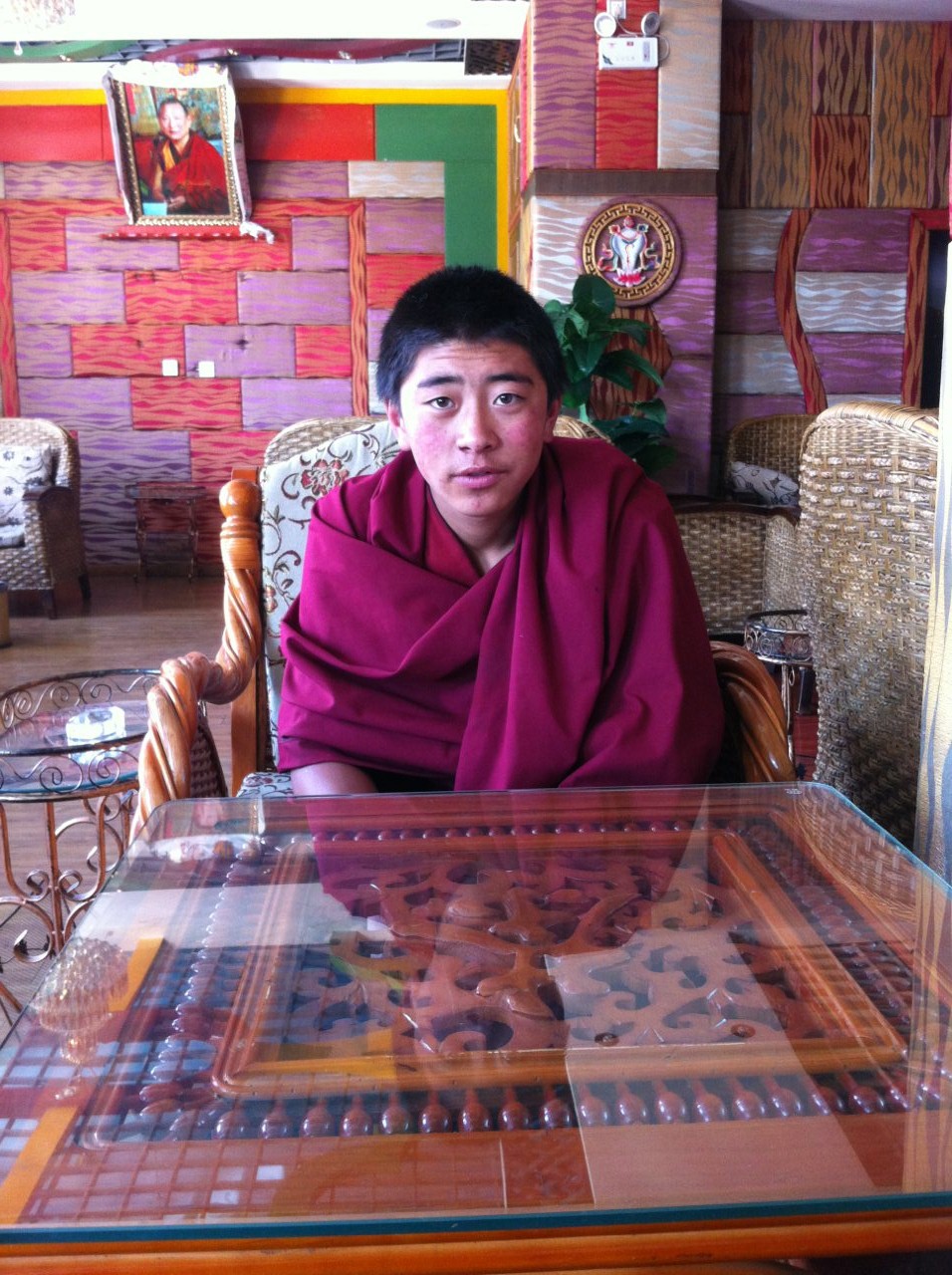
Four Tibetan monks who had called for freedom, human rights and the long life of the Tibetan spiritual leader His Holiness the Dalai Lama were recently sentenced to prison on charges of inciting separatism.
The monks had held peaceful solo protests late last year in separate incidents by holding aloft portraits of the Dalai Lama and shouting slogans along the main road of the Ngaba County town in Ngaba (Ch: Aba) Tibetan and Qiang Autonomous Prefecture, Sichuan Province, in the Tibetan province of Amdo. TCHRD reported on the detention of the monks in previous updates.
All four monks, who belonged to the local Kirti Monastery, had been sentenced to three years each. All were arbitrarily detained and held incommunicado for over ten months without the knowledge of their family members and access to due legal process. Incommunicado detention and custodial torture are common practices employed by Chinese security officials in Tibet.
Lobsang, a 23-year-old student of Buddhist logic at Kirti Monastery was detained on 10 September 2015 by the local security personnel. On 19 July 2016, he was sentenced to three years at secret trial held by the Maowun (Ch: Mao) County People’s Court, located about 350 km (217 miles) from the Ngaba county seat. His family and relatives were not informed about the trial.
The same day, another monk named Adrak was sentenced by the same court to three years fixed-term imprisonment. Adrak, 21, was detained on 10 September 2015 and since then, his whereabouts remained unknown until 4 August 2016, when relatives found him locked at Mianyang Prison near Chengdu.

Jamphel Gyatso, 22, was detained on 9 September 2015 for staging similar protest and was sentenced to three years on 1 August this year. He was held incommunicado at Maowun County Detention Centre and was likely moved to Deyang(德阳) Prison, located in Huang Xu Town in Deyang City, Sichuan Province.
Lobsang Kelsang, 20, went missing since his detention on 7 September last year following his solo protest. Early this month, family members and relatives learned that he had been secretly detained in Maowun County Detention Centre for months before he was sentenced to three years. He is now serving his sentence at Mianyang Prison.
Video footage released earlier by TCHRD showed a group of Tibetans, including an elderly woman, walking towards the police station and protesting Lobsang Kelsang’s detention in front of the local police station. Baton-wielding policemen in heavy riot gear were seen beating the protestors and chasing them away, while a woman in the background was heard praying for the Dalai Lama and lamenting that the policemen were not allowing the Tibetans to live.

Lobsang Kelsang is a cousin of Lobsang Tenpa, a young monk who was sentenced to two years in prison for staging a solo protest in November 2014. His maternal uncles, Tsedak Gonpo and Choephel, were sentenced to six and four years respectively for their participation in peaceful protests that broke out in March 2008 in Ngaba County.
In July this year, Chinese authorities distributed a booklet that contained explicit provisions criminalising freedom of expression in Tibet. The booklet was distributed in 42 monasteries in Ngaba Prefecture and criminalised, among others, acts of solo protests as inciting separatism. ‘Inciting separatism’ is a catchall phrase used by Chinese authorities to persecute human rights defenders and their non-violent activities. The crime of inciting separatism was introduced during the 1997 amendment as a second clause in Article 103 of Chinese Criminal Law. Those convicted of this crime could be given a fixed term of up to five years imprisonment, short-term detention, supervised release or deprivation of political rights.
Since 2014, TCHRD’s Political Prisoners Desk has recorded 28 known peaceful solo protestors, out of which six are laywomen, 14 monks and eight laymen. Majority of the solo protests was staged in Ngaba County, which also witnessed the most number of self-immolation. TCHRD believes that there are other unknown Tibetans who have been arbitrarily detained in connection with similar protests but due to the climate of repression and fear of reprisals, the actual number of detention remains unknown.

